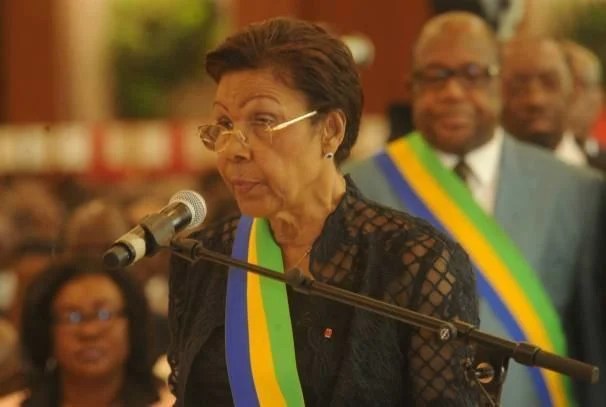By Spy Uganda
Many women played significant roles in Africa during the colonial era, from the struggle for independence to the final liberation of the continent from colonial rule. Some of these heroic African Amazons’ deeds were forgotten or not recorded, while others were recorded and passed down from generation to generation, celebrating their significance to the continent’s history.

Many female activists, policymakers, and politicians have risen up against the continent’s negative issues in the post-colonial era and played critical roles in Africa’s advancement.
In this article, we will highlight some African women who, as heads of state or heads of government, have contributed to and continue to contribute to the development of the continent. Their success stories have inspired and nurtured this generation, and they will continue to do so for the next, raising pragmatic and forward-thinking female leaders who will go to great lengths to lift the continent out of its doldrums.

Sahle-Work Zewde (President of Ethiopia)


Sahle-Work Zewde has been Ethiopia’s President since 2018. She was elected by a unanimous vote of the Federal Parliament, making her the country’s first female president. Her role as head of state, however, is purely ceremonial, with the prime minister, who is the head of government, wielding the majority of executive powers.
Sahle-Work previously served as the Ethiopian Ambassador to Senegal, with accreditation to Mali, Cape Verde, Guinea-Bissau, Gambia, and Guinea, as well as the Under-Secretary-General, Head of the United Nations Office to the African Union.
Ellen Johnson Sirleaf (President of Liberia)

Ellen Eugenia Johnson Sirleaf was the 24th President of Liberia from 2006 to 2008, making her the country’s first female president and the continent’s first female head of state. One of her most notable achievements while in office was signing the Freedom of Information Bill into law in October 2010, making it the first of its kind in West Africa.
Joyce Banda (President of Malawi)

Joyce took over as President of Malawi following the death of President Bingu wa Mutharika in April 2012. She was Malawi’s first female president, and she is the founder and leader of the Peoples Party. She served as Malawi’s Vice President from 2009 to 2012, as well as a former Minister of Foreign Affairs and a former Minister of Gender, Child Welfare, and Community Service.
Ivy Matsepe-Casaburri (President of South Africa)

Despite not being elected, Ivy Florence Matsepe-Casaburri made history as South Africa’s first female President and the country’s first Black female Head of State after Queen Elizabeth II’s reign as Queen of South Africa ended in 1961. She briefly served as South Africa’s Acting President in 2005, when President Thabo Mbeki and his deputy were away on official business.
She also served as Acting President for a few hours in September 2008, when the cabinet appointed her as the constitutional and official interim head of state between the time Thabo Mbeki resigned and President Kgalema Motlanthe took office.
Rose Francine (President of Gabon)

Rose Francine Rogombé served as Acting President of Gabon from June 2009 to October 2009, following the death of President Omar Bongo. She previously served as Senate President, which qualified her to become President of the United States.
She later returned to the Senate after a new president was elected. During her brief presidency, she became Gabon’s first female President.
Catherine Samba-Panza (President, Central African Republic)

Catherine served as the Central African Republic’s Interim President from January 2014 to March 2016, making her the country’s first female Head of State. She previously served as Mayor of Bangui from June 2013 to January 2014.
Ameenah Gurib-Fakim (President of Mauritius)

From 2015 to 2018, Dr. Bibi Ameenah Firdaus Gurib-Fakim was Mauritius’ first elected female president. Ameenah was Mauritius’ third female Head of State, following Queen Elizabeth II and Monique Ohsan Bellepeau.
Cissé Sidibé (Prime Minister of Mali)

Cissé Mariam Kadama Sidibé was appointed Prime Minister of Mali by decree. She served for nearly a year, from April 2011 to March 2012, during Amadou Toumani Touré’s presidency during the 2012 Malian coup d’état.
Saara Kuugongelwa (Prime Minister of Namibia)

Saara is Namibia’s current Prime Minister; she took office in March 2015 and is the country’s first female leader. She was the Minister of Finance from 2003 to 2015, as well as the Director-General of Namibia’s National Planning Commission from 1995 to 2003. She has been a member of Namibia’s National Assembly since 1995.
Adiato Djalό Nandina (Prime Minister, Guinea-Bissau)
Adiato Djal Nandina served as Acting Prime Minister of Guinea-Bissau from February to April 2012, making her the country’s first female Prime Minister. Her government, however, was deposed during the Guinea-Bissau Coup d’état in 2012. She had previously served in the cabinet.








